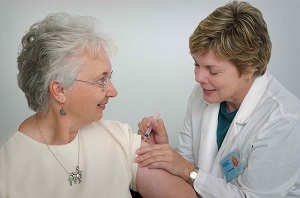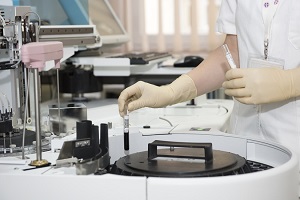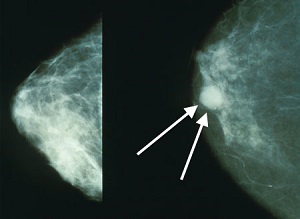Did you know about synthetic estrogen and its side effects? If not, or if you have come to know about it recently, this article will help you understand the positive, as well as the negative effects of synthetic estrogen for your body.
What Every Woman Needs to Know About Estrogen
The hormone estrogen is found in both men and women. However, it is more prevalent in women. ‘Estrogen’ is a collective term that includes a group of similar hormones, such as estrone, estradiol and estriol. Out of these, estradiol is present in abundance during a woman’s reproductive age.
Estrogen is responsible for bestowing women with their feminine characteristics, such as curvier breasts, bigger butts and thighs, a round body and lesser facial and bodily hair.
Estrogen is also an essential hormone that plays a major role in the reproductive process of a female. Additionally, this hormone increases the level of good cholesterol or HDL, and decreases the level of bad cholesterol in the body.
Although estrogen has innumerable benefits to a woman’s body, it can be very tricky. During the menopausal stage, woman may experience a severe lessening of estrogen. This is the reason why so many women experience memory problems, vaginal itching, dryness, irritability and hot flashes. There are even studies that indicate that a severe lack of estrogen in the body can lead to severe hair loss. The other symptoms of estrogen dominance include bloating, low sex drive, weight gain, headaches and mood swings.
In order to get rid of the many weird effects of estrogen deficiency, most women resort to estrogen replacement therapy. Let’s learn more about this alternative in detail.
The Lowdown on Estrogen Replacement Therapy
Estrogen replacement therapy works to restore the balance of hormones in women dealing with menopause, or those who have undergone removal of ovaries after hysterectomy.
Doctors provide additional synthetic estrogen to the patient’s body through injections, oral administration, or patches in order to lessen the symptoms that are caused by the low levels of estrogen.
Things You Need to Understand About Synthetic Estrogen
 Estrogen replacement therapy is getting very popular among women who want to get rid of the many unpleasant side effects that result from menopause.
Estrogen replacement therapy is getting very popular among women who want to get rid of the many unpleasant side effects that result from menopause.
However, there are many things that remain unanswered or go unnoticed when you consider estrogen replacement therapy as a potential means to restore hormonal balance.
If you are one of those women considering estrogen therapy, then it is important that you learn about the pros and cons of this treatment to make an informed decision. Read on to learn about the various aspects of estrogen therapy your doctor may not tell you:
1. Are Synthetic Estrogens Effective?
Synthetic estrogens are prepared in a laboratory and their formula is based on the chemical structure of naturally occurring hormones in the human body. In simpler words, estrogen look-alikes are all foreign or synthetic substances processed and created in a research laboratory.
 Women who want to have estrogen replacement therapy provide their blood and saliva samples to the laboratory. These samples are needed in order to gather the information to help create a hormonal replica of what their bodies naturally synthesize.
Women who want to have estrogen replacement therapy provide their blood and saliva samples to the laboratory. These samples are needed in order to gather the information to help create a hormonal replica of what their bodies naturally synthesize.
These synthetic estrogens hardly bear any resemblance to any hormones our bodies naturally form. Are you wondering how synthetic estrogen works to alleviate some of the symptoms?
They work because your body’s cells misinterpret some parts of the molecular structure of these substances. They are actually chemical hybrids.
Women who are currently partaking hormone replacement therapy and not finding the desired results are often taking one of such synthetic hormones. These synthetic hormones only work to replace your hormones with foreign molecules and don’t supplement them. An estrogen deficiency can only be effectively restored through the balancing of hormones and supplementation.
2. How Are Synthetic Hormones Derived?
 More than thirty years ago, pharmaceutical companies decided to derive synthetic estrogen through animal sources. Synthetic estrogen is obtained from a pregnant mare’s urine.
More than thirty years ago, pharmaceutical companies decided to derive synthetic estrogen through animal sources. Synthetic estrogen is obtained from a pregnant mare’s urine.
Pharmacists want their hormone to be patented; thus, they intend to create synthetic estrogen with a chemical structure that is slightly different from naturally produced estrogen. Although a bit different, synthetic estrogen manages to cause some of the similar effects to the body.
On the other hand, bioidentical hormones are obtained from plant sources, such as yams or soy and are processed in a laboratory to make their chemical structure similar to the natural hormones synthesized in the body. Bioidentical hormones closely resemble the natural hormones, and therefore they are also known as natural hormone replacement therapy.
3. Should We Worry About Synthetic Estrogen’s Side Effects?
There are numerous side effects of using synthetic estrogen. It is important to note that there is a huge difference between the estrogen that’s naturally produced in your body and that which is prepared in a lab.

Synthetic estrogen only works to imitate the functions of naturally occurring estrogens.
Women who use estrogen hormone therapy may experience mild to severe side effects such as leg cramps, weight gain, fluid retention, headaches, nausea, vaginal bleeding, vaginal discharge, breast pain and recurring yeast infections.
Other side effects include skin pigmentation, especially on the facial region. In a few cases, there can be an amplified development of uterine fibroids or a deteriorating of endometriosis.
In numerous cases, the side effects are temporary and usually resolve after some weeks of the therapy. However, if the symptoms persist, you will need to consult your health physician. He may have to adjust the estrogen dosage according to your health condition.
4. The Potential Risks of Using Synthetic Estrogens

Estrogen therapy can prove risky for some women. This increased risk of health disorders is dependent on your health status as well as age.
Long-term use of synthetic estrogen may make women vulnerable to breast cancer. Experts suggest using estrogen therapy for less than seven years to avoid this risk.
Estrogen therapy also increases your risk for uterine cancer. Doctors often administer progesterone along with synthetic estrogen to rule out this possibility. Using estrogen therapy may also put women at an increased risk of getting afflicted with blood clots, dementia, liver damage, gall stones, ovarian cancer, stroke, urinary incontinence or cardiovascular diseases.
5. Is Low-Dose Estrogen a Safer Alternative?
 Scientists are working to learn about the effects of low dose estrogen therapy. Experts are of the opinion that low-dose estrogen therapy may help to relieve hot flash symptoms and keep bones strong. However, the long term risks of low-dose estrogen therapy are still not known.
Scientists are working to learn about the effects of low dose estrogen therapy. Experts are of the opinion that low-dose estrogen therapy may help to relieve hot flash symptoms and keep bones strong. However, the long term risks of low-dose estrogen therapy are still not known.
Low dose estrogen preparation are available in the form of tablet, ring or cream form and can effectively cure various urinary and vaginal symptoms, while reducing absorption into the body.
6. A Better Approach: Systemic Hormone Therapy
Systemic estrogen is available in gel, spray, cream, skin patch or pill form. You may be pleased to know that it is one of the safer and effective alternatives to sack some of the unpleasant menopausal symptoms such as night sweats and hot flashes.
Systemic estrogen therapy can also provide relief from various other vaginal symptoms, such as burning, dryness, itching and discomfort during sexual intercourse.
7. Ways To Minimize Estrogen Therapy Risks
 The decision to use estrogen therapy is solely based on your bodily needs and health. Your doctor is a better judge to ensure if or not you are the right candidate for undergoing estrogen therapy. Undoubtedly, regardless of its side effects and potential risks, estrogen therapy also provides innumerable benefits to women.
The decision to use estrogen therapy is solely based on your bodily needs and health. Your doctor is a better judge to ensure if or not you are the right candidate for undergoing estrogen therapy. Undoubtedly, regardless of its side effects and potential risks, estrogen therapy also provides innumerable benefits to women.
If you are keen to begin estrogen therapy, then you should discuss all the possible advantages and risks of the various forms, as well as the dosage levels of estrogen therapy with your doctor.
It is also recommended that you discuss ways to manage menopausal and post-menopausal symptoms with your doctor.
 You should also consider eating a healthy diet, exercising regularly and curtailing your intake of alcohol and tobacco while on estrogen therapy. These healthy habits will definitely decrease your risk of severe health ailments, such as coronary heart disease and osteoporosis.
You should also consider eating a healthy diet, exercising regularly and curtailing your intake of alcohol and tobacco while on estrogen therapy. These healthy habits will definitely decrease your risk of severe health ailments, such as coronary heart disease and osteoporosis.
It is important to note that hormonal replacement therapy is only necessary when your symptoms are severe. Even short-term use of this therapy may put you at an increased risk of a debilitating health condition. Your doctor may need to examine you regularly if you are on hormonal replacement therapy.
8. Are You the Right Candidate for Estrogen Treatment?
 You may not be the right candidate for taking estrogen therapy if you are expecting a baby, or dealing with a liver disorder or prolonged impaired liver function. Women with unexplained vaginal bleeding and heavy smokers should not take this treatment, as well.
You may not be the right candidate for taking estrogen therapy if you are expecting a baby, or dealing with a liver disorder or prolonged impaired liver function. Women with unexplained vaginal bleeding and heavy smokers should not take this treatment, as well.
Your doctor may not prescribe your estrogen therapy if you have a medical history of endometrial cancer, breast cancer or ovarian cancer. Women who have had a stroke or with a history of blood clots are also not the right candidates for estrogen treatment.
9. Estrogen Therapy: The Bottom Line
Estrogen therapy is not the ultimate cure as it was once thought to be. However, for the treatment of severe cases, estrogen therapy is still counted as the best treatment to use. It helps to manage many of the unpleasant symptoms of menopause effectively and improves the quality of life, especially when taken under the proper supervision of a qualified doctor.
It reduces the frequency of night sweats, hot flashes, vaginal dryness, poor sleep and pain during sexual intimacy. It improves sleep apnea and mood swings, as well as retaining the vaginal lining and reducing irritation.
 Estrogen therapy also lessens the possibility of dental complications, including gum disease and tooth loss.
Estrogen therapy also lessens the possibility of dental complications, including gum disease and tooth loss.
It helps to check osteoporosis caused during menopause by decelerating the loss of bone and encouraging some augmentation in bone density. It enhances the production of skin collagen levels, which usually declines as estrogen levels decline.
The hormonal balance of a woman’s body is very delicate. Even a small disruption or incompatible material can put a damper on the body’s ability to create a natural hormonal balance.
Even though estrogen therapy is effective, it can possibly worsen the body’s hormonal balance when not guided by an experienced doctor.
In some cases, herbal treatments and the right nutrition may be all that is needed to restore normal hormonal levels at any age. Many women prefer using safer and natural ways to balance their bodies and retain their youthful vigor. If you are facing an inadequate sex drive because of menopause or for any other reason, there is yet another effective and natural way to reignite it.
The female enhancement pills from Hersolution.com are prepared from natural ingredients that help women desire sex again, and enjoy it, as well. So, go for it if you really want to rustle under the sheets again and rediscover your good old sex days.
